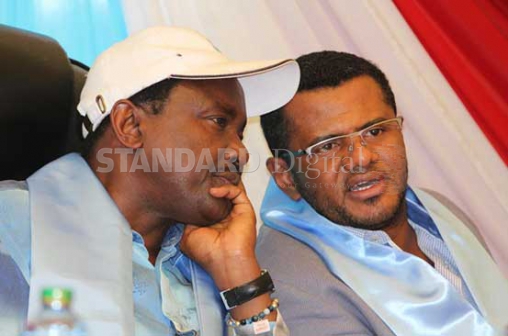
CORD co-principal Kalonzo Musyoka‘s Wiper Democratic Movement will not budge on its December 25 deadline for the coalition to pick a joint presidential candidate, Secretary General Hassan Omar told The Standard on Sunday writer NZAU MUSAU.
In a candid interview on the state of the coalition, intrigues surrounding the Mombasa County governor race and role of youthful leaders in politics, Omar bared it all. He says his party cannot wait any further than December 25, demands a more structured process to pick a joint candidate and dismisses the euphoric rise of Mombasa Governor Hassan Joho as fleeting.